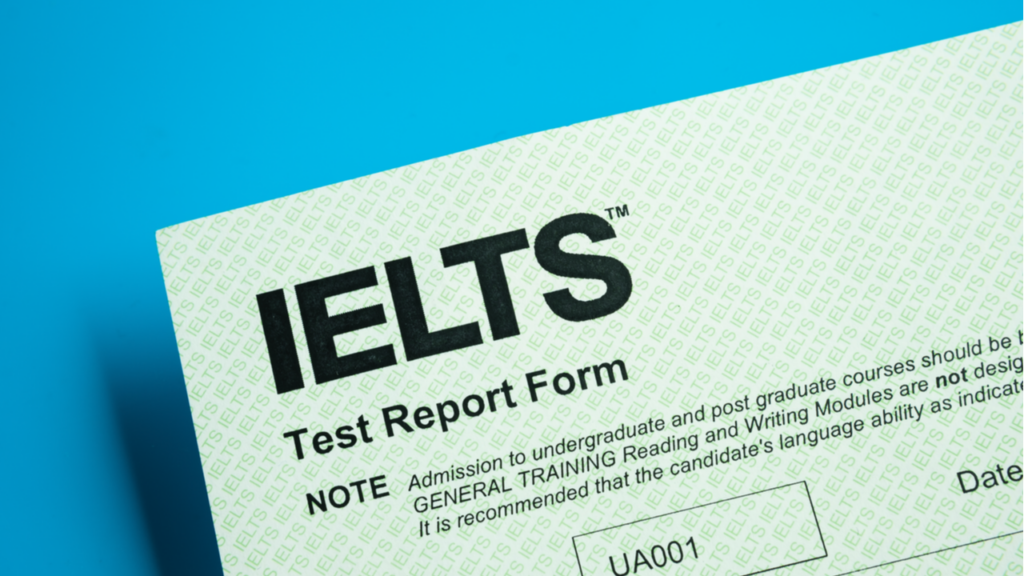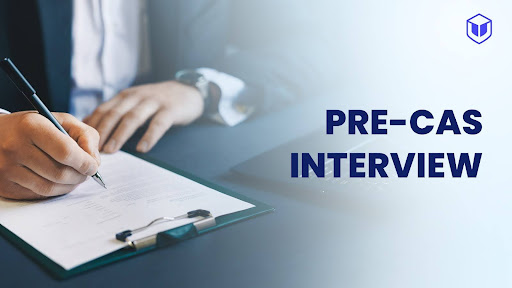As one of the most widely recognised language proficiency exams, IELTS is valued by top universities for its credibility and accuracy. Achieving a high IELTS score can significantly enhance your chances of admission to these prestigious institutions. However, many students find the process challenging. To help you overcome this, we will explore the expert IELTS tips and tricks designed to boost your score and improve your chances of success.
The IELTS band scores range from 0 to 9, with a 9 indicating expert-level proficiency and a 7 being considered an average score.
There are two types of IELTS exams: IELTS Academic, for those applying to universities, and IELTS General Training, which is aimed at those pursuing high school, vocational training, or work opportunities.
The exam is divided into four sections: Reading, Writing, Listening, and Speaking. Each section is assessed based on criteria like:
- Task response (how well you answer the question),
- Coherence and cohesion (how well you organise your ideas)
- Lexical resource (your range of vocabulary),
- Grammatical range and accuracy (how correct and varied your grammar is).
In this blog, we will learn more about IELTS tips and tricks for getting good scores in your exam.
Structure of IELTS Modules
The IELTS exam has four key parts: Listening, Reading, Writing, and Speaking. Depending on your needs, you can choose between two versions: Academic or General Training.
The Reading and Speaking sections are the same in both versions, but the Listening and Writing sections vary. Plus, you’ll take the Speaking test on a separate day, so you have some extra time to prepare.
To do well in the IELTS and reach your academic and career goals, it’s crucial to prepare thoroughly for each part. Each section is essential for showcasing your language skills, so putting in the effort will pay off.
Four sections of this IELTS exam are –
| Paper | Task | Time |
| Listening | 4 Parts (4 recordings & 40 questions) | 30 minutes (+10 minutes) |
| Reading | 3 Parts (40 questions) | 1 hour |
| Writing | Task 1 & Task 2 | 1 hour |
| Speaking | Introduction Round Individual Long Turn (Cue Card) Two-Way Discussion round | 11 -14 minutes. |
IELTS Listening
In the IELTS Listening section, you’ll listen to a range of recordings, like conversations and talks, and answer questions based on them. It has four progressively harder parts, so you’ll need to pay close attention and catch details since each recording is played only once. Practising with different accents and question types will help you do well.
When you’re taking the IELTS Listening test, here’s what you should do:
- Before the test starts, quickly review the questions so you know what to expect.
- Write dates in the format they ask for, like day/month/year or month/day/year.
- If you run into any problems during the test, just raise your hand, and someone will help you.
- Practice listening to both British and American English to get used to different accents.
- Check your headphones before the test to make sure they’re working well.
- Pay close attention because the audio is played only once.
- Take notes while you listen; it can help you remember important details.
- After you finish, go over your answers to check for any grammar or spelling mistakes.
| Duration of the test | 30 mins |
| Number of recordings | 4 |
| Total number of questions | 40 |
| Number of questions to each recording | 10 |
The Listening section of the IELTS exam is pivotal for your overall score. It evaluates your ability to comprehend spoken English across diverse topics and accents.
Key Strategies:
- Effective Note-Taking: Use efficient note-taking techniques to jot down important details while listening to the recordings. 📝
- Accent Familiarisation: Get used to different accents and speech patterns to be comfortable with various English dialects. 🗣️
- Real-Life Context: Practice understanding English as it’s spoken in everyday situations to boost your comprehension skills. 🌍
Test Format:
- Four Recordings: Cover a range of topics, including social issues, education, science, and technology.
- 40 Questions: Test your understanding through multiple-choice, matching, and sentence completion formats.
Tips for Success:
- Stay Focused: Pay close attention during the recordings, as they’re played only once. 👂
- Practice Regularly: Get familiar with the test format by working with sample questions and recordings.
- Time Management: Manage your time wisely to ensure you answer all questions. ⏰

Excel in IELTS with India’s Top Online Coaching
Leap has helped more than 1 Lakh students achieve 7+ IELTS band.
IELTS Listening Tips and Tricks
Here’s how to level up your listening skills:
- Be Patient and Consistent: Improvement takes time, so stick with it and practice regularly.
- Create a Routine: Set up a daily listening habit that works for you, like tuning into different sources every day.
- Pick Topics You Enjoy: Choose subjects that interest you and listen to a variety of accents and dialects.
- Focus on the Big Picture: Try to get the main idea instead of stressing over every detail.
- Take Notes: Jot down key points while listening and review them to see what helped you understand better.
- Learn New Words: Look up words you hear often but don’t know.
- Practice Speaking: Chat with a friend in English regularly to build your skills.
- Guess Unanswered Questions: Try to guess the answers for any questions you’re unsure about.
- Read Questions Carefully: Before each listening section, make sure you understand what you’re being asked.
- Answer Correctly: Use the right number of words and write in capital letters.
- Transfer Answers Neatly: During the transfer time, move your answers to the answer sheet clearly, and go back to any questions you missed.
To do well in the Listening section, practice consistently and use effective strategies. By staying dedicated and preparing properly, you’ll increase your score and succeed in the IELTS exam. Keep putting in the effort, and you’ll achieve your goals!

Excel in IELTS with India’s Top Online Coaching
Leap has helped more than 1 Lakh students achieve 7+ IELTS band.
IELTS Reading
In the IELTS Reading section, you’ll tackle a range of texts, including articles and passages, and answer questions based on what you read. The test is divided into three parts, each one getting more challenging, so it’s important to stay focused and catch the details.
You’ll read texts from magazines, journals, books, online sources, and newspapers, covering general interest topics suited for undergraduate and postgraduate levels. The total length will be between 2150 and 2750 words, and you’ll encounter various writing styles, from descriptive and narrative to argumentative.
| Total Number of questions | 40 |
| Total duration of the test | 1 hour |
IELTS Reading Academic includes three long texts ranging from factual and analytical to descriptive and analytical.
IELTS Reading General: It has three parts of the test:
- Part 1: 2-3 short texts.
- Part 2: 2 texts.
- Part 3: 1 long text.
Key Strategies:
- Skimming and Scanning: Practice skimming to get the main idea of the text quickly and scanning to find specific details and keywords. 📖
- Expand Your Vocabulary: Boost your vocabulary by reading a variety of texts and learning new words in context. Use a dictionary to look up any unfamiliar terms. 📚
- Underline and Highlight: Mark important information in the text with underlining or highlighting. This will make it easier to find key details when answering questions. ✏️
Test Format:
- Three Parts: Each section features different types of texts, like advertisements, newspapers, magazines, and academic articles.
- 40 Questions: You’ll answer questions in formats like multiple-choice, matching, and sentence completion.
Tips for Success:
- Read the Questions First: Before diving into the text, carefully read the questions to know what you need to look for.
- Manage Your Time: Keep track of time during the test so you can answer all questions. Spend more time on questions with higher marks.
- Practice Regularly: Get familiar with the test format by practising with sample questions and texts. This will help you feel more comfortable and perform better.
- Develop Critical Thinking: Work on analysing and interpreting the information in the texts to understand the main ideas and details.
- Stay Focused: Keep your concentration sharp, avoid distractions, and stay on task to make the most of your time and improve your performance.
Explore all countries
IELTS Reading Tips and Tricks
- Mix Up Your Reading Material: Dive into newspaper articles, blogs, books, and textbook activities. Variety helps!
- Daily Reading Habit: Spend 20-30 minutes each day on different texts to build your reading stamina.
- Expand Your Vocabulary: Look up common words in a dictionary to learn their meanings and improve your word bank.
- Try Different Techniques: Practice skimming for the main ideas, scanning for details, answering detailed questions, and summarising texts.
- Read What Interests You: Choose topics you enjoy, but also explore different subjects since the IELTS covers a wide range.
- Discuss Texts with Friends: Share interesting reads and chat about them in English to enhance your understanding and speaking skills.
- Time Your Reading: Set a timer and try to read a text within a certain time limit to build speed.
- Read Aloud: Practice reading out loud with friends or record yourself to improve fluency and pronunciation.
- Know the Exam Style: Get familiar with different question types like multiple choice, short answer, and sentence completion.
By following these tips, you’ll develop strong reading skills that will help you excel in the IELTS exam.
Also Read: Ace IELTS Reading with 7+ Bands In just 1 Week!
IELTS Writing
In the IELTS Writing section, you’ve got an hour to complete two tasks. The first task differs between the Academic and General tests. For Academic, you’ll describe data or a process, while General requires writing a letter.
Task 2 is the same for both: you’ll write an essay discussing a topic or sharing your opinion. Your writing will be graded on how well you answer the questions, how clearly you organise your ideas, and how good your vocabulary and grammar are. So, practice each part and get comfortable with the criteria to do your best!
| Duration of this section | 1 hour |
| Number of parts of the section | 2 |
IELTS Writing Tips and Tricks
Here are some handy IELTS Writing tips and tricks to help you ace the exam:
- Skip Spoken English: Stick to formal written language rather than conversational phrases.
- Focus on Task 2: This part counts for more marks, so give it extra attention.
- Write Neatly: Make sure your handwriting is clear and easy for the examiner to read.
- Avoid Repetition: Try not to repeat ideas, phrases, or words. Fresh content keeps your writing engaging.
- Use Active Voice: Writing in active voice makes your sentences stronger and clearer.
- Keep Paragraphs Short: Write concise paragraphs to make your essay more readable. Avoid long, bulky paragraphs.
- Stick to Word Limits: Task 1 should be around 150 words, and Task 2 should be about 250 words.
- Include a Conclusion: Always end Task 2 with a clear conclusion to wrap up your essay effectively.
Remember these tips, and you’ll be well on your way to a great band score!
Also Read: IELTS Writing Task 2: Most popular 50+ Essay Topics of 2024
Also read:
IELTS Speaking
The IELTS Speaking module, whether you’re taking the Academic or General test, follows the same format. It’s a short but crucial part of the exam, lasting just 11-14 minutes.
The test is divided into three parts:
- Part 1 is the introduction, where you’ll answer questions about yourself and your background.
- In Part 2, you’ll receive a Cue card with a topic to talk about for one to two minutes.
- Part 3 will involve a discussion with the examiner on more complex topics related to the Cue card.
Despite being shorter than other sections, this test is key to showcasing your spoken English skills.
| Duration of the section | 11-14 mins |
| Number of parts in the section | 3 |
IELTS Speaking Tips and Tricks
Here are some tips and tricks to help you ace the IELTS Speaking exam:
- Listen Carefully: Make sure you really understand the questions before you start answering. If something’s unclear, don’t hesitate to ask the examiner to repeat or clarify the question.
- Stay Calm: Try to relax and stay composed. The more at ease you are, the better you’ll perform.
- Draw on Your Experiences: When answering questions, focus on your own experiences and personal stories. It makes your responses more authentic and engaging.
- Speak Clearly: Aim for clear and steady speech. Speak slowly and fluently to ensure the examiner can easily understand you.
- Add Relevant Details: Feel free to include supporting details or examples in your answers, but make sure they’re directly related to the question.
- Be Confident: Confidence goes a long way. Even if you’re unsure, speak with assurance.
- Avoid Long Pauses: Try to keep your answers flowing without long pauses. It helps to keep the conversation natural and engaging.
Quick IELTS Tips and Tricks for the Test Day
After all your hard work and preparation, a few key tips can help you maximise your IELTS band score on exam day. Here’s what you should keep in mind:
- Carry Your ID: Make sure you bring the required identification with you. Before you head into the exam room, double-check the list of documents you need.
- Leave Your Belongings Outside: Follow the supervisor’s instructions to store your personal items outside the exam room. This helps keep the testing environment secure and distraction-free.
- No Wristwatches Allowed: You won’t be able to wear a wristwatch during the exam. Instead, use the clock provided in the exam room. If you can’t find it, ask the examiner for help.
- Mobile Phones are Prohibited: Phones must be left outside the examination room. Arrange to keep your phone with a friend or use the storage options provided by the exam centre.
IELTS Tips & Tricks Before The Test Day
Knowing some useful tips and tricks before your IELTS test day can really make a difference! They’ll help you take the exam smoothly, use time wisely, and avoid common mistakes. Feeling prepared will also boost your confidence so you can focus on doing your best.
- Start Early: Begin studying at least two months before your test date to give yourself plenty of time to cover everything.
- Find Your Weak Spots: Figure out which areas you struggle with and spend extra time improving them.
- Make a Study Plan: Set up a study schedule that works for you and stick to it. Make sure you spend enough time on each part of the exam.
- Practice Regularly: Take lots of practice tests to get familiar with the exam format and improve your skills.
- Use Official Materials: Stick to official IELTS practice tests and study guides to make sure you’re preparing the right way.
IELTS Tips & Tricks on The Day of The Test
Having a few smart tips for the day of your IELTS test can really help you shine. They’ll keep you cool under pressure, help you stay organised, and ensure you confidently handle every part of the exam.
Here are some key tips to keep in mind for the day of your IELTS test:
- Arrive Early: Getting to the test centre ahead of time helps you avoid any last-minute rush. It also gives you a chance to get comfortable and calm down before you start.
- Stay Calm: Keep your cool throughout the exam. If you find yourself stuck on a question, take a deep breath and move on—don’t let it throw you off balance.
- Follow Instructions: Pay close attention to the instructions for each section. Make sure you understand the word limits and how to format your answers correctly.
- Manage Your Time: Use your time wisely. Spend only a few moments on challenging questions and ensure you answer all questions within the allotted time.
- Stay Hydrated: Drink water or non-caffeinated beverages to keep yourself hydrated. Staying hydrated helps you stay alert and focused.
Final Thoughts
Checking out some IELTS tips and tricks can definitely help you score higher and aim for that top band. Also, having your documents sorted before the exam day can really ease your mind and reduce last-minute stress.As more students consider studying abroad, a high IELTS score can make you a more attractive candidate for top universities.
If you’re looking for top-notch guidance and effective strategies for the IELTS, Leap Scholar is here to help you prepare and achieve your best possible score.
Frequently Asked Questions
-
Q. What to bring in an IELTS test?
A: For the paper-based IELTS test, you’ll need to bring an ID, pen, pencil, and eraser. However, if you’re taking the computer-based test, you only need to bring your ID. Make sure to check the official IELTS website for any specific requirements or updates about what you need to bring. It’s a good idea to keep an eye on the website so you’re always up-to-date with the latest info for your exam.
-
Q. Which is the easiest part of IELTS?
A: All sections of IELTS carry equal weight and, therefore, must be given equal attention. However, students should focus more on the sections that they feel the least confident in so that they can familiarise themselves with that section and attempt it with confidence on the test day.
-
Q. How can I pass the IELTS successfully?
A: In order for you to have a good score, you should practise solving previous and sample papers as well as take help from the online resources available. You can also get help with Leap Scholar. We can help you through the process of giving IELTS to fill out applications for universities till your visas.
-
Q. What time are IELTS results released?
A. The time for IELTS results in both the computer-based and paper-based mediums is different. If you have given a computer-based test, then you can expect your results after 3 to 5 days after the test date. If you have given a pen and paper test, then you can expect your results 13 days after the test date.
-
Q. Is the IELTS exam conducted every day?
A. The IELTS exam is available every day for the computer-based test, except on public holidays, making it easy to find a time that suits your schedule. For the paper-based test, it’s offered 48 times a year, but not on Thursdays or Saturdays. This flexibility helps you plan your test around your busy life, giving you ample opportunities to take the exam and achieve your goals.
-
Q. What can I expect on IELTS test day?
A. On IELTS test day, expect to arrive early at the test center with your ID. You’ll go through a security check, including fingerprinting and a photo for verification. For the computer-based test, you’ll work on a computer; for the paper-based test, you’ll use pen and paper. You’ll complete the Listening, Reading, and Writing sections in one session, followed by the Speaking test on a different day or the same day.
-
Q. What are the most useful IELTS tips and tricks for scoring well?
A. To do well on the IELTS, practice your English skills daily and get used to the test format. Time yourself during practice tests to build speed and accuracy. Understand the requirements for each section of the exam and practice managing your time effectively. On the test day, make sure to stay calm and focused. This will help you perform your best and achieve the scores you’re aiming for.
-
Q. Can a beginner pass IELTS?
A. Yes, a beginner can pass IELTS by getting proper guidance on understanding the questions and format of the test and by strategising the answers according to the question. You can practice questions from resources such as the IELTS prep app by Leap Scholar and books like Cambridge IELTS 11 Academic Student’s Book with Answers: Authentic Examination Papers.
-
Q. How can I get 8.5 in IELTS?
A. Yes, you can get 8.5 in IELTS. The tips that you can follow to score 8.5 in IELTS are:
1. You may start with a sample test from the IELTS official website to check where you stand.
2. Spend time understanding the questions and their patterns to answer better.
3. Keep in mind the time limit for each segment. -
Q. Which IELTS exam is easy, computer-based or paper-based?
A. Labelling one version of the IELTS exam as easy or difficult is inappropriate, as each format has its unique set of advantages and challenges. While the computer-based exam offers the convenience of instant results and the ability to navigate back and forth between questions, some test-takers may prefer the traditional pen-and-paper format. Ultimately, the choice of which format to take depends on the individual’s preferences and comfort level with technology. It is recommended that test-takers familiarise themselves with both formats and choose the one that suits them best.
-
Q. How do I prepare for IELTS at home?
A. Preparing for IELTS at home is totally doable! Start by setting up a study routine and dive into practice tests for each section: Listening, Reading, Writing, and Speaking. You can also use online classes, like those from LeapScholar, for expert tips and structured guidance. Regular practice with official materials and getting feedback will boost your confidence and help you nail the test.
















Have Questions? Get Guidance to reach your Dream University
Connect with India's finest counsellors and biggest study abroad community.
Get Guidance